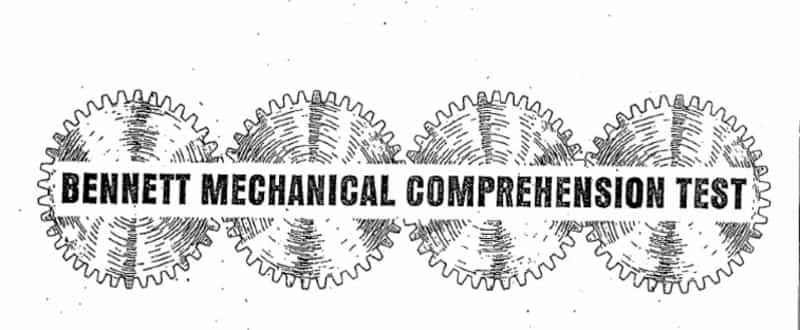The Bennett Mechanical Comprehension Test (BMCT) is designed to assess mechanical aptitude. It determines a candidate’s mechanical reasoning ability. While initially developed in the 1940s, authorities gave the test an overhaul in 2014, to bring it more in line with modern employment expectations. This test was renamed the BMCT-II, although most people call it the BMCT.
Potential employers in the mechanical or technical field use this test to ensure that prospective employees have sufficient aptitude for such jobs. It identifies natural aptitude, which employers then build on with additional training and development:
A BMCT overview
A BMCT is a prerequisite for some multinational employers, such as Coca-Cola, Delta Airlines, and Nestle. However, many smaller companies insist on it as well. The thinking behind it is that a candidate’s mechanical aptitude is an excellent indicator of their future performance. While it is impossible to do rote learning for this exam, there are other ways to prepare for the Bennett Mechanical Comprehension Test.
A BMCT measures four major indicators of mechanical aptitude: mechanical reasoning, spatial perception, knowledge of fundamental physics and mechanics, and an understanding of how machinery works. This test is not only utilized as a pre-employment tool as some companies use it to determine if an employee would benefit from additional training and development.
Others use it as part of a risk assessment process to determine that employees can operate heavy machinery safely and minimize breakages, which disrupt production and cost money to repair.
BMCT format
This test may be conducted remotely, although some learning centers offer it in-person, and some employers insist that it is administered thus. Each test consists of 55 questions that candidates have 25 minutes to answer. Questions are multiple-choice, so the examinee must choose the correct one from a set of three predetermined answers.
Ten mechanical fields are covered in the test. There are six questions each relating to hydraulics, inclined planes, and forces, centrifugal force and inertia. A section on gears and belt drivers features five questions, while gravity and speed account for four questions. Three questions each cover objects’ gravitational center, electricity, heat, forms and volumes, and acoustics and optics. A final section labeled ‘other’ contains the last six questions.
Level of difficulty
Each BMCT is made up of 55 questions that come from a bank of around 300. Questions are graded by difficulty, ranging from simple to challenging. A set balance of question difficulty is included in each BMCT. This ensures that the test is fair.
It is impossible to study for every question as some variables may apply to each. However, understanding what to expect and a few rounds of practice should get you sufficiently prepared to pass.
As you can see from the list of ten sections a BMCT contains, a sound working knowledge of physics is essential for a great grade. Therefore, your point of preparation departure should be reviewing the physics you learned at school so that you can apply that knowledge during the test. It will shorten how much time each question takes to complete.
Timing
Speaking of time, a simple calculation reveals that you have 45 seconds to complete each answer in a BMCT test. However, your level of preparedness will allow you to answer some within a few seconds, leaving more time to devote to challenging questions.
Experts advise that you work through sections that you regard as a strength first and then move to more challenging ones afterward. Getting as many answers correct is the aim of this game. Therefore, hovering over one question because you are unsure how to approach it is a waste of time that could cost you a passing grade.
Pass requirements
A BMCT test is suitable for machine operators, skills trades, technical agricultural jobs, mechanics, vocational jobs, apprenticeships, maintenance technicians, and engineers. As each job has varying degrees of responsibilities, a passing grade might not be the same as another.
For example, a bike mechanic does not need a score as high as an aviation mechanic. Maintenance technicians’ passing score will be lower than that of engineers.
Therefore, it is impossible to define what a BMCT pass benchmark is. A complex algorithm determines your ultimate score, which your employer would grade as poor, average, or excellent.


